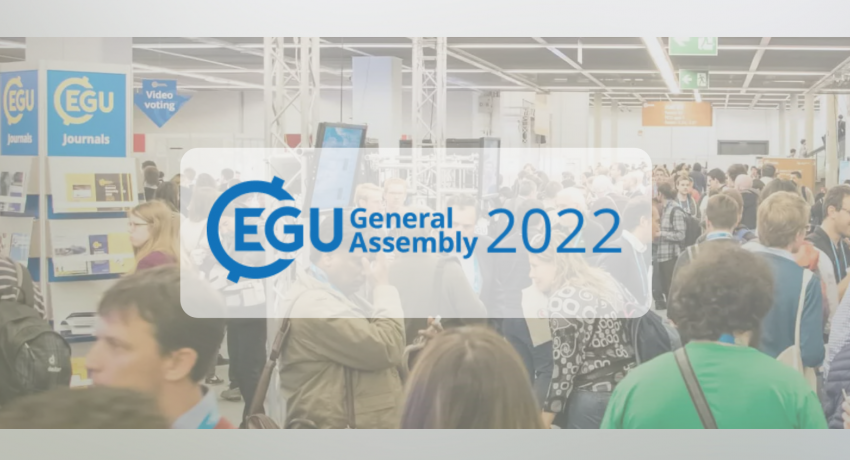The latest project findings are presented at the 2022 EGU General Assembly by 4C researchers.
The European Geosciences Union (EGU) is hosting its yearly General Assembly on 23-27 May 2022. The conference brings together scientists from the Earth, planetary and space science fields to present and discuss the latest research in their fields, in particular targeting early-career scientists.
A number of 4C researchers are participating in the event, presenting their findings on carbon cycle research and climate predictions. Policy-relevant results that can help reduce uncertainties and move towards a net-zero world are also showcased.
Most sessions will take place on site in Vienna, Austria, while a possibility of virtual connection is also available. Sessions presenting 4C findings include the following:
-
Monday 23 May, 17:12-17:18 CEST: Adaptive emission reduction approach to reach the Paris Agreement temperature targets, Jens Terhaar (University of Bern) - This session proposes a policy-relevant adaptive approach to bypass uncertainties when quantifying the global emission reductions for the global stocktake.
-
Thursday 26 May, 15:24-15:31 CEST: climpred: weather and climate forecast verification in python, Aaron Spring - The session showcases the python package “climpred”, which was built to help simplify and standardise forecast verification across different timescales, in an attempt to address the challenges in prediction skill quantification.
-
Friday 27 May, 10:32-10:38 CEST: Multi-model comparison of carbon cycle predictability in initialized perfect-model simulations, Aaron Spring (Max Planck Institute for Meteorology) - During this presentation, the predictive skill of land and ocean carbon fluxes, as well as atmospheric CO2 concentration, in seven Earth system models is discussed. These predictions are an important aspect of monitoring the total anthropogenic CO2 emission rates.
-
Friday 27 May, 10:38–10:44 CEST: Global carbon budget variations in emission-driven earth system model predictions, Hongmei Li (Max Planck Institute for Meteorology) - This session presents a novel approach to reconstruct and predict the global carbon budget in decadal prediction systems based on emission-driven Earth system models.
-
Friday 27 May, 11:08-11:14 CEST: Drivers of the natural CO2 fluxes at global scale as simulated by CMIP6 simulations, Veronica Martin-Gomez (BSC) - The session analyses the main sources of variability in atmospheric CO2 concentration at the inter-annual timescale, which are a result of internal climate processes. The findings could be applied in the detection of atmospheric CO2 decrease resulting from the reduction in emissions.
-
Friday 27 May, 11:32-11:38 CEST: Understanding intermodel differences in land carbon sink projections, Ryan S. Padrón (ETH Zurich) - This session discusses advances on our understanding of why land carbon sink projections from Earth system models differ globally and across regions, which can guide efforts to reduce the underlying uncertainties.
-
Friday 27 May, 16:14-16:20 CEST: Evaluating the vegetation-atmosphere coupling strength of ORCHIDEE land surface model, Yuan Zhang (IPSL) - This session investigates how well the ORCHIDEE land surface model can simulate the decoupling of vegetation to atmosphere using observation-based estimates. Correct representation of processes like plant transpiration in Earth system models is important for more accurate climate projections.
To keep up to date with the 4C presence at EGU, follow @4C_H2020 on Twitter and the project's hashtag #4CatEGU.

